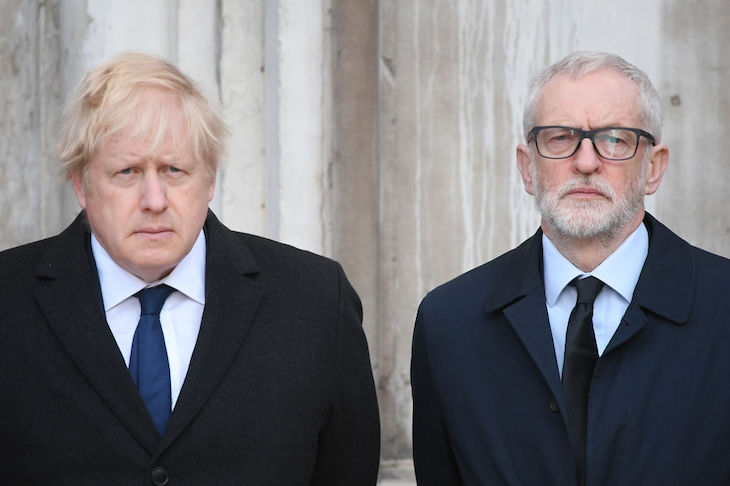We have a likely candidate who allegedly told one of her colleagues ‘I’m glad my constituents aren’t as stupid as yours’, and who has threatened to sue the MP who told the story as she says it’s untrue. We have a frontrunner who can see nothing wrong in the manifesto with which Labour just crashed to its biggest defeat since the 1930s; another who went down to a limp defeat when she last stood for the leadership against Jeremy Corbyn. The Labour leadership contest is hardly going to worry Tories too much.
That might be good news for Boris Johnson, in that he is unlikely to have much of a challenger in 2024. But is it really good to have such a weak opposition?
John Biffen, who held several Cabinet posts in Mrs Thatcher’s first government, was eviscerated by his boss when he asked the same question after the Conservative landslide in 1983. But he was right to worry about the shrivelled Labour party that the Tories faced for much of the 1980s. While it wasn’t much of an electoral threat, the lack of opposition was a poor influence on the government itself. It encouraged hubris which contributed to the Conservative cataclysm of 1997.
Like now, Labour in the mid 1980s offered a very shouty opposition. Windbag-in-chief Neil Kinnock was not lacking in confidence at the despatch box. On occasions he even made a good speech – his ‘don’t get old, don’t fall ill’ speech on the eve of the 1983 general election was a classic: one of the few speeches to have come from a modern politician which I can still more or less recite.
The trouble was that there was no real threat to Margaret Thatcher’s majority, except when she tried to liberalise Sunday trading laws and suffered a massive rebellion from her own back benches. Otherwise, she had to fear from her own side.
Nor did Labour, reduced to a rump, offer much in the way of forensic criticism of the government’s bills – the tone of the opposition was one of generalised outrage at the very existence of conservatism, not well-targeted deconstruction.
The result was that bad laws like the poll tax began to slip through the Commons when they ought to have been stopped. The problems Mrs Thatcher suffered at the end of her premiership have often been ascribed to a weak Cabinet, stripped of talent by her paranoiac reshuffles. But the foundation of her troubles was a weak opposition which encouraged ill-discipline.
That minority government is a recipe for chaos has been proven beyond doubt over the past few months. The dangers of too large a majority and too weak an opposition are less obvious, but more insidious.
It is good that Boris only has a strong majority of 80 rather than the super-sized majority of 144 which Mrs Thatcher won in 1983. But it would do us all good if Labour were a more credible opposition. Perhaps there will turn out to be talent on the back benches, but it is not yet obvious where it lies.







Comments